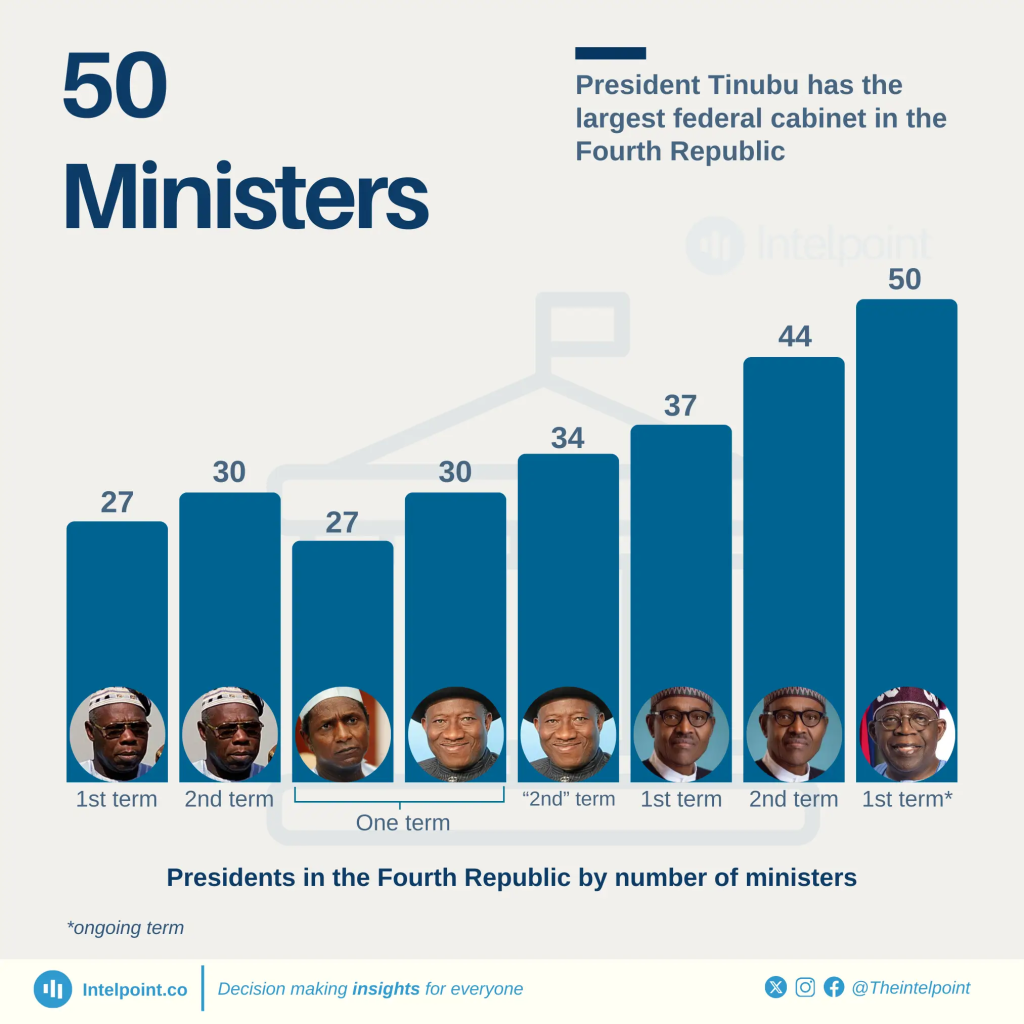
Why President Tinubu Stands Firm on Cabinet Size
In a recent media chat, President Bola Ahmed Tinubu firmly defended his decision to maintain a large cabinet, consisting of 48 ministers and several advisers. His remarks come amid growing criticism regarding the perceived bloat of his administration. Tinubu’s rationale centers around the need for efficiency in governance and the complexities of managing a nation with over 200 million people.
Rationale Behind Cabinet Size
During the session held at his residence in Ikoyi, Lagos, on December 23, Tinubu stated, “I am not ready to shrink the size of my cabinet.” This assertion reflects his belief that a larger team is essential to effectively meet the diverse needs of Nigeria’s population. He emphasized that each minister was selected based on their ability to contribute meaningfully to the administration’s goals.
Strategic Governance Needs
The president’s defense of his cabinet size is not just about numbers; it is also about strategic governance. “I saw the need for them when I created the portfolios,” he explained. Each ministerial role is crucial for addressing specific challenges facing the country. For instance, managing Nigeria’s vast resources and addressing regional disparities require dedicated leadership across various sectors.
Reforms and Fuel Subsidy Removal
Tinubu’s comments also come in light of significant governmental reforms he has implemented since taking office in May 2023. This includes the controversial removal of fuel subsidies. He reiterated his stance on this issue, stating, “I don’t have any regrets whatsoever in removing petrol subsidy.” This decision aimed to curb excessive government spending and foster a more competitive market environment.
Countering Criticism
Critics have labeled his cabinet as “bloated,” arguing that it contributes to high costs of governance. However, Tinubu countered this by asserting that reducing the number of ministers would not necessarily lead to more efficient governance. He believes that having a larger cabinet allows for more specialized attention to various sectors, ultimately benefiting Nigerians.
Why the Need for a Larger Cabinet
To illustrate his point, Tinubu compared Nigeria’s governance needs to those of smaller nations. He argued that with such a vast population and diverse needs, a more substantial cabinet is necessary to ensure effective service delivery. “If you are to entertain over 200 million persons, calculate how many stewards will be required,” he asserted.
Restructuring for Efficiency
Moreover, why they say Tinubu’s administration has undergone significant restructuring since its inception is yet to be seen. In October 2024, he merged several ministries and appointed new ministers to streamline operations while maintaining the overall size of his cabinet. This restructuring aims to enhance efficiency without compromising on governance quality.
Commitment to Economic Reforms
The president also addressed concerns regarding economic reforms and taxation during the media chat. He stated unequivocally that tax reforms are essential for modernizing Nigeria’s economy. “Tax reform is here to stay; we cannot just continue to do what we were doing years to years in today’s economy,” he declared. This commitment underscores his administration’s focus on long-term economic stability.
Fiscal Responsibility and Public Finances
Tinubu’s approach reflects a broader trend among leaders in developing nations who grapple with balancing efficient governance against public expectations for reduced government spending. His insistence on maintaining a large cabinet may resonate with those who believe that specialized attention is necessary for effective governance in complex societies.
Why A Firm Stance on Governance
In conclusion, while critics may continue to challenge the size of President Tinubu’s cabinet, he remains steadfast in his belief that it is essential for addressing Nigeria’s multifaceted challenges. By prioritizing efficiency and specialized governance, Tinubu aims to navigate the complexities of leading one of Africa’s largest nations effectively.

